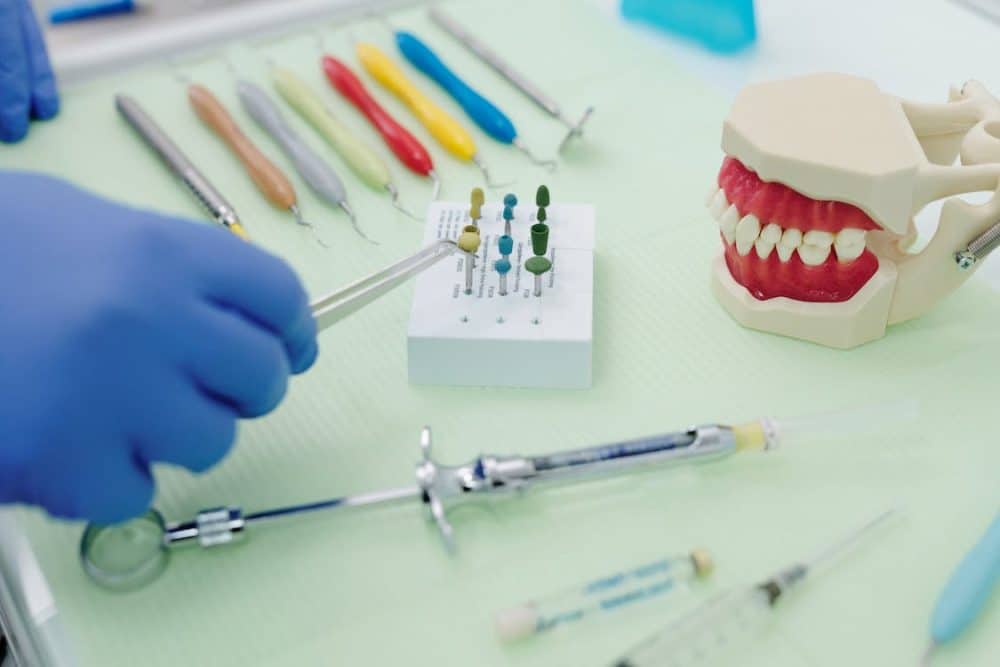
The Need to Knows of Nebraska Dental Insurance

Not to be overly dramatic, but if you say your toothache is the worst pain you’ve ever had, we won’t argue with you.
We’re not saying any single pain is worse than another. Yet, when the nerve endings of a tooth are exposed, the pain is literally in your head, affecting everything else you’re trying to do.
That’s why taking care of a toothache in its early stages is important.
Yet, 30% of the United States population (read: millions of people in Nebraska alone) don’t go to the dentist regularly, and it’s mostly due to the cost.
That’s where dental insurance can help. If you live in Nebraska, you might be eligible for various plans to help you offset the cost of dentistry.
What types of plans are out there?
How much do they cost?
Are they really worth it?
You have questions, and we have the answers to all things related to Nebraska dental insurance right here.
Learn how to obtain self-employment insurance in your field:
Freelance Disability Insurance | Freelance Ghost Insurance | Freelance Workers Comp Insurance | Freelance Critical Illness Insurance | Freelance E&O Insurance | Freelance Airbnb Host Insurance | Freelance Commercial Auto Insurance | Freelance Commercial Property Insurance | Freelance Utah Home Insurance | Freelance Amazon Flex | Freelance Carpet Cleaning Insurance | Freelance Window Cleaner Insurance | Freelance Pressure Washer Insurance | Freelance Electrician Insurance | Freelance Mechanic Insurance | Freelance Junk Removal Insurance | Freelance Bartender Insurance | Freelance Hair Stylist Insurance | Freelance Barber Insurance | Freelance Taskers Insurance | Freelance Web Designer Insurance | Freelance Doordash Driver Insurance | Freelance Uber Driver Insurance | Freelance Plumber Insurance | Freelance Writer Insurance
What Types of Dental Insurance Plans Are Available in Nebraska?
Regardless of your choice, the average dental insurance plan looks similar to the rest. You’ll have a monthly premium, a deductible, copays, and a network of providers who accept the insurance plan.
Dental insurance coverage focuses on preventive care. Your annual x-rays, semi-annual cleanings and exams, and other wellness services will either be free or low-cost. And, as with all insurance, some treatments are covered, while others are excluded.
The major differences in each plan are in the premium rates, coverage amounts, network of providers, and services included. You’ll look at these as you compare your dental plan options.
Employers, State, and Private Insurance Plans
Nebraska dental insurance plans are available through employers, private carriers, and the state. Yet, the best dental insurance for you depends on your specific needs and how you can access coverage.
For instance, if you’re a freelance grant writer, freelance personal trainer, or freelance illustrator, you’ll need to find private insurance. But if you work for a large company, you could have dental options at your disposal if you ask.
Employer Dental Coverage
When searching for a dental insurance plan in Nebraska, check with your employer first (if you have one).
Employees of companies with 50 or more full-time workers or the equivalent of part-time staff must offer health insurance. (The Affordable Care Act federally mandates it.) However, dental insurance isn’t part of this mandate.
But many large healthcare providers, such as Blue Cross, offer affordable dental insurance as optional add-ons.
For a few dollars extra a paycheck, you could have family plans that cover preventive care, like:
- Exams
- Cleanings
- X-rays
- Other services
The only thing to be aware of with an employer dental plan is that you don’t have much say in your benefits plan. You have to use the network providers your company chooses, and you’re stuck with the deductible and coinsurance amounts in the company plan.
Government Plans
Nebraska’s government offers dental insurance plans through the Healthcare Marketplace. This is the place to go for affordable health coverage.
Your prior income taxes will determine your monthly premium, and you may qualify for subsidies to discount your payments.
Once you choose your medical insurance, you can add a dental policy from private carriers like Delta Dental. These are separate policies and will cost extra but are usually only $20-$30 for an individual or family plan.
You’re still tied to the network, coverage, out-of-pocket expenses, and other aspects of a private plan. But now you have medical and dental protection.
Subscribe To SelfGood
Get up to date perks and Gigworker news. Easy. Simply. SelfGood. Subscribe.
Private Standalone Policies
Private dental insurance works like an employer-based policy or Marketplace coverage. You have premiums, in-network dentists, deductibles, and other typical dental coverage factors.
However, private insurance has some pros and cons to be aware of.
Private plan advantages put you in more control of your dental health. For example, if you have a favorite dentist, you can shop around until you find a private plan that that office accepts.
You’ll also have more say in your coverage, looking for plans that reduce your out-of-pocket costs or allow services you need.
There’s a big disadvantage, though.
Private insurers often require a waiting period before you can access non-preventive benefits. For example — fillings and root canals.
It’s the company’s way of ensuring that people don’t take out a policy for an expensive treatment, then cancel their coverage immediately after.
Are you a freelancer considering dental insurance? Learn how to get coverage in How to Get Dental Insurance While You’re Self-Employed.
Does Medicaid Offer Dental Insurance in Nebraska?

Nebraska’s Medicaid dental plan is available through MCNA Dental. Qualifying children and adults can receive coverage if they meet the health and financial requirements.
MCNA offers an impressive benefits package.
All your preventive and approved treatment services are paid in full, depending on your plan.
Thousands of dentists also accept the MCNA plan, but not every office does. According to recent studies, only 38% of dental offices take this insurance. So, if you live in a small town, you may have to drive to a larger city, like Omaha or Lincoln, to find a provider.
This low percentage is due largely in part to the history of Medicaid. In the past, this insurance rarely covered most dental treatment; if it did, it paid less than half of what private insurers allowed.
Today’s Medicaid system has undergone a massive overhaul. In fact, it’s now comparable to or better than many private companies, even including vision and mental health benefits.
Do you think you may qualify for Medicaid?
If so, check out their requirements and application on the Department of Health and Human Services eligibility page.
How Do You Know What a Good Dental Plan Looks Like?
If you’re like most of us, the first thing you look for in any health plan isn’t the coverage; it’s the monthly premium.
Yes, your insurance rates must be affordable and within your budget, but why pay for something that doesn’t give you the treatment you need?
How to Find a Good Dental Plan
There are two main types of dental insurance: HMO and PPO plans.
HMO (Health Maintenance Organization) plans focus on preventive services. That means they also exclude many other dental services. The network of providers charges a monthly or annual fee to members.
But coverage is limited, and you can only see the providers under contract with the HMO. So going out of the network for anything negates your coverage for that service.
PPO (Preferred Provider Organization) plans are a little more expensive. However, they include more services, as long as you see their preferred providers. For instance, you may be allowed to see an out-of-network dentist, but you’ll pay more for the privilege.
Look for a solid dental plan that will be beneficial, not a waste of your monthly premium.
Just the Numbers, Please
Before looking at the monthly amount you’ll pay, take a minute and review the other out-of-pocket expenses.
The typical dental plan pays on a tiered basis, like this:
- Tier 1: Preventive/Wellness care; covered at 100% (or with a small copay)
- Tier 2: Intermediate care, such as fillings, extractions, scaling and planing, and other minimally invasive procedures; covered at a rate like 80/20, with you paying the lesser portion
- Tier 3: Substantial treatments, such as root canals, crowns, and implants, covered at a 50/50 or 40/60 rate
You want plans that include the best tiers possible.
Let’s look at the cost of an average filling visit for a simple cavity.
The price of the filling itself depends on the type you choose, but $250 is a good estimate. Add the dental visit, exam, and anesthesia, and you can safely expect a $500 visit.
If your plan pays at an 80/20 after your deductible is met, they’ll cover $400, leaving you with $100 as your share. Meanwhile, if it’s a 60/40, they’ll pay $300, and you now have to pay $200.
To take this a step further, that $100 extra you are stuck paying now could have given you an extra $8/month in better coverage ($100 divided by 12 months = $8.33.)
A Tier 2 at 80/20 instead of a Tier 2 at 60/40 would be worth paying an extra few dollars a month in your premium.
However, that’s only if the annual maximum is decent.
Every dental plan has a benefits plan cap, a maximum amount they’ll pay for your dental care during a calendar year. Most plan caps are between $1,500 and $3,000. Therefore, paying a little more for a higher annual maximum is smart, too.
Read the fine print and factor in your copays, deductibles, and annual cap before you decide to invest in a policy because it’s the cheapest one. You could be throwing away your money.
Are There Alternatives to Dental Insurance?

You want to go to the dentist. You really do. But you don’t think insurance is worth the investment, especially if you’re a freelance carpenter, freelance social media manager, or freelance administrative assistant.
The great news is that you still have options. Many providers affiliated with professional dental associations accept dental savings plans plus insurance.
What’s a Dental Savings Plan?
Do you have a membership with your favorite grocery store, Sam’s, or Costco? These connections give you discounts when you shop at that store, right?
That’s what a dental savings plan, also called a discount plan, does.
As a member, you pay an annual membership fee to receive an ID number and card. Then, when you visit a dentist in the network, you present your card, pay cash for your treatment, and receive a discount because you have the plan.
Selfgood’s Dental Savings Plan
There are hundreds of dental savings plans on the market, but, as with insurance coverage, they’re not all equal. The key is to look for one powered by a major insurance carrier, like Selfgood’s savings plan connected to Aetna.
Selfgood is a membership-based platform for self-employed workers. As a member, you receive rates on goods and services at a corporate discount.
The dental discount plan gives you access to the massive list of providers in the Aetna Dental network (administered by Aetna Life Insurance Company).
You choose the dentist you want to see from the extensive list of in-network providers. Visit them without a referral or special approval, and receive the care you need.
Insurance plans usually don’t cover dentures, orthodontics, and cosmetic treatments. Yet, a savings plan discounts every procedure.
So it’s an excellent choice for people on Medicare (which doesn’t cover dental). It’s also popular among self-employed workers who don’t want to add unnecessary monthly expenses to their budget.
When you check out, you’ll get a discount on the service that can be anywhere from 10% of cash rates or higher. No deductibles, copays, claim forms, or reimbursement is necessary; just pay the bill, and you’re done.
It’s a simple and affordable way to pay for only the treatment you need when you need it.
A one-time annual membership fee gives you the peace of mind of knowing your dental care isn’t costing you a tooth, arm, and leg.
Read: What You Get: Dental Plan vs Dental Insurance FAQ
Conclusion
With the right dental insurance option, you can take care of your oral health before it becomes painful and dangerous. Choose from plans that offer in- and out-of-network provider coverage.
If dental insurance isn’t your best option, use Selfgood’s dental savings plan that lets you see anyone in the network you want without restrictions.
While checking out the dental plan, take a minute to look around at all the other available services. When you’re a Selfgood member, you can access various goods and services at discounted rates, from health and legal to online shopping.
It’s a membership that truly pays for itself.
Learn more about the healthcare benefits Selfgood members enjoy!





